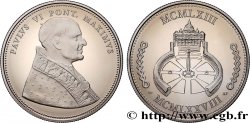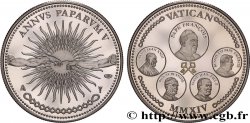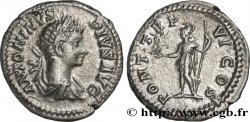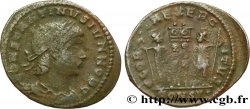E-auction 166-102745 - fwo_329515 - VATICANO Y ESTADOS PONTIFICIOS 2 Lire Pie IX an XXII 1867 Rome
Usted debe firmar y ser un comprador aprobado para pujar, Inicia sesión para pujar. Las cuentas están sujetas a la aprobación y el proceso de aprobación se alcanzan dentro de las 48 horas. No espere hasta el día en una venta se cierra el registro.Al hacer una oferta en este artículo usted está firmando un contrato jurídicamente vinculante para comprar este artículo y haga clic en «oferta» constituye una aceptación de los términos de uso de e-auctions de cgb.fr.
La subasta debe ser colocado en euros enteros cantidades venta only.The se cerrará en el momento en la descripción del artículo, no se ejecutarán las ofertas recibidas en el sitio después de la hora de cierre. Veces Transmition pueden variar y las ofertas pueden ser rechazadas si espera a los últimos segundos. Para más información envie el FAQ.
SIN GASTOS PARA LOS COMPRADORES.
SIN GASTOS PARA LOS COMPRADORES.
| Valoración : | 45 € |
| Precio : | 16 € |
| Oferta más alta : | 18 € |
| Fecha de fin de la venta : | 20 junio 2016 17:23:30 |
| participantes : | 7 participantes |
Tipo : 2 Lire Pie IX an XXII
Fecha: 1867
Nombre del taller / ciudad: Roma
Cantidad acuñada: 1224283
Metal: plata
Milésimas de pureza : 835 ‰
Diámetro: 28 mm
Eje de acuñación: 6 h.
Peso: 9,54 g.
Canto: cannelée
N° en los catálogos de referencia :
Anverso
Titulatura del anverso: PIUS IX PON. - MAX.A.XXII.
Descripción del anverso: portrait à gauche du pape Pie IX.
Traducción del anverso: (Pie IX souverain pontife, vingt-deuxième année).
Reverso
Titulatura del reverso: STATO PONTIFICIO / R.
Descripción del reverso: inscription sur 3 lignes 2 / LIRE / 1867 dans une couronne de feuilles de chêne et d’olivier.
Comentario
Pie IX (1792-1878), élu après une vacance de quinze jours seulement, a le plus long pontificat du XIXe siècle. Après des débuts heureux, montrant en lui, sinon un libéral du moins un novateur entre 1846-1848, la révolution romaine le rejette dans le conservatisme. Après la Révolution de février en France, l'agitation gagne l'Europe entière et même Rome. Devant le refus de Pie IX de déclarer la guerre à l'Autriche, la république est proclamée le 9 février à l'instigation de Mazzini et de Garibaldi. Le 1er juin, un corps expéditionnaire est envoyé à Rome pour rétablir l'ordre. Les Français s'emparent de la ville le 3 juillet et rétablissent Pie IX. Il ne peut empêcher Victor Emmanuel II de réaliser l'unité italienne et se retrouve isolé à partir de 1861. Rome résiste encore neuf ans avant de tomber entre les mains du roi d'Italie et devient la capitale en 1870. Pie IX vit les neuf dernières années de sa vie en se considérant comme prisonnier du pouvoir italien.
Pius IX (1792-1878), elected after a vacancy of only fifteen days, had the longest pontificate of the 19th century. After a happy start, showing in him, if not a liberal, at least an innovator between 1846-1848, the Roman revolution threw him back into conservatism. After the February Revolution in France, unrest spread throughout Europe and even Rome. Faced with the refusal of Pius IX to declare war on Austria, the republic was proclaimed on February 9 at the instigation of Mazzini and Garibaldi. On June 1, an expeditionary force was sent to Rome to restore order. The French seized the city on July 3 and restored Pius IX. He could not prevent Victor Emmanuel II from achieving Italian unity and found himself isolated from 1861. Rome resisted for another nine years before falling into the hands of the King of Italy and becoming the capital in 1870. Pius IX saw the nine last years of his life considering himself a prisoner of Italian power
Pius IX (1792-1878), elected after a vacancy of only fifteen days, had the longest pontificate of the 19th century. After a happy start, showing in him, if not a liberal, at least an innovator between 1846-1848, the Roman revolution threw him back into conservatism. After the February Revolution in France, unrest spread throughout Europe and even Rome. Faced with the refusal of Pius IX to declare war on Austria, the republic was proclaimed on February 9 at the instigation of Mazzini and Garibaldi. On June 1, an expeditionary force was sent to Rome to restore order. The French seized the city on July 3 and restored Pius IX. He could not prevent Victor Emmanuel II from achieving Italian unity and found himself isolated from 1861. Rome resisted for another nine years before falling into the hands of the King of Italy and becoming the capital in 1870. Pius IX saw the nine last years of his life considering himself a prisoner of Italian power







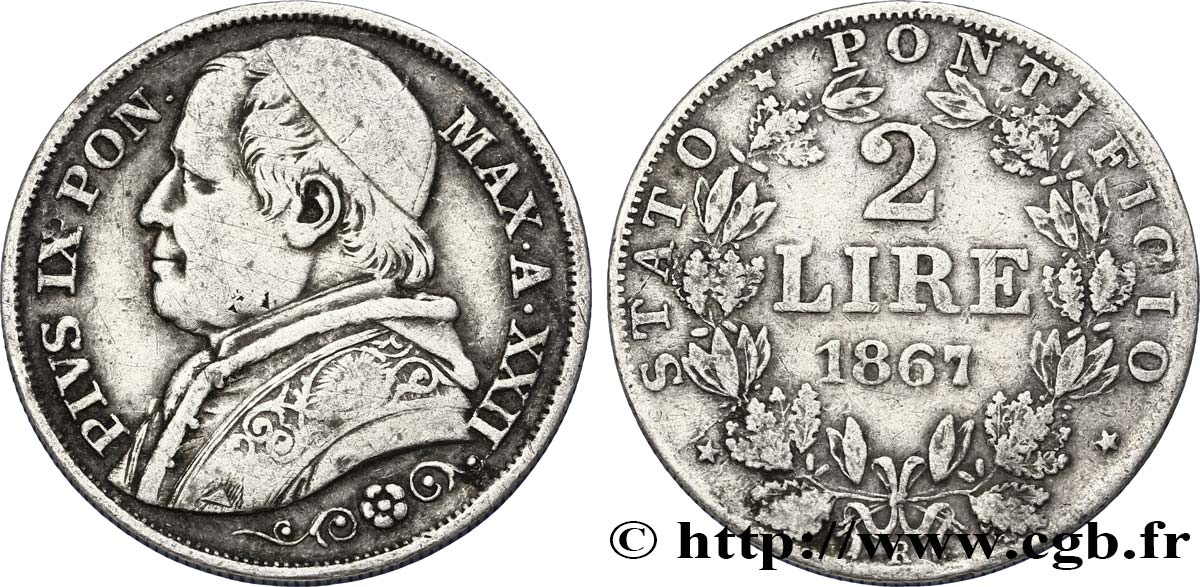
 Informar de un error
Informar de un error Imprimir la página
Imprimir la página Comparte mi selección
Comparte mi selección Haz una pregunta
Haz una pregunta Consignar / vender
Consignar / vender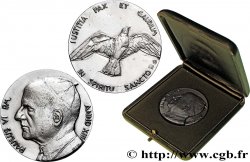
 Descriptivo
Descriptivo